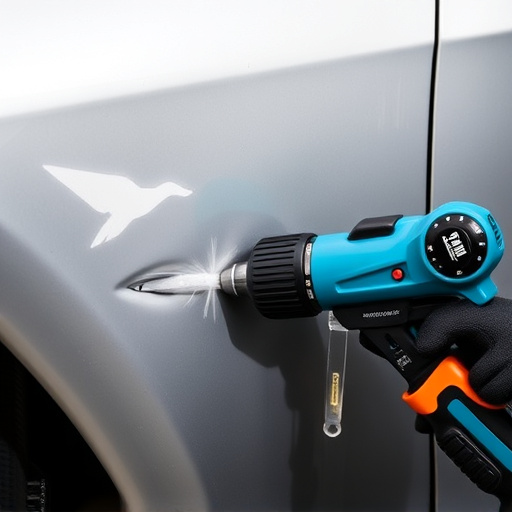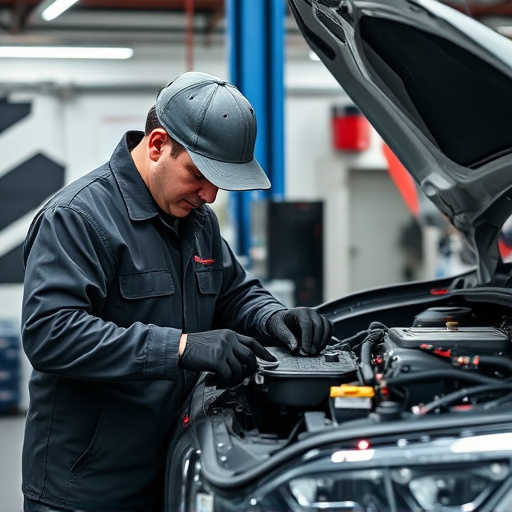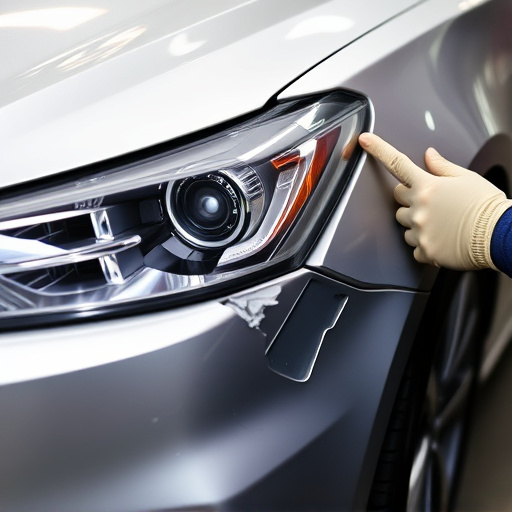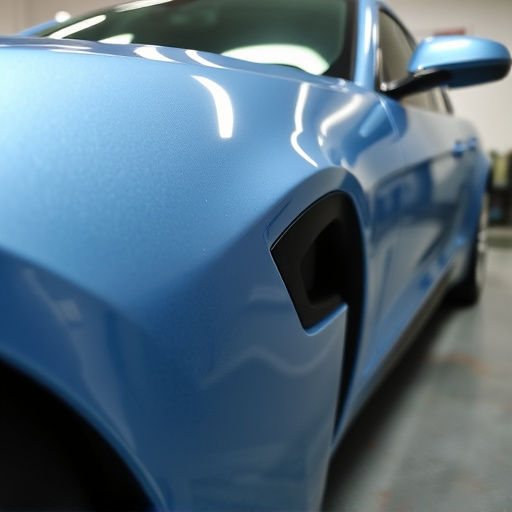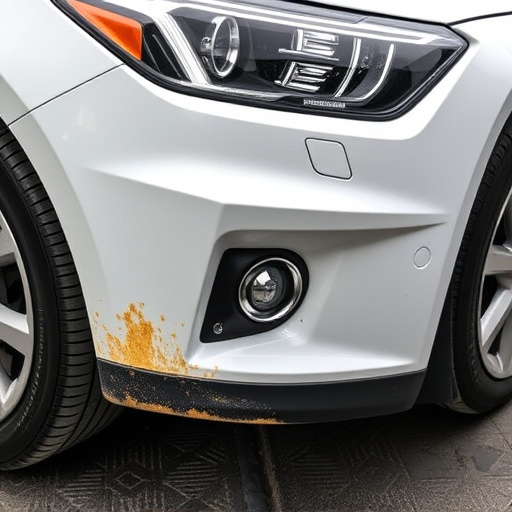Regular brake system collision checks are vital for vehicle safety and maintenance. They simulate emergency braking to evaluate pads, rotors, and calipers health, identifying issues early that could prevent catastrophic failures. These inspections are crucial post-damage, enhancing performance and saving lives by ensuring reliable braking, thus reducing the need for costly auto body repairs like glass replacement.
In today’s digital era, understanding your vehicle’s brake system is paramount for safety. One crucial tool in this regard is the Brake System Collision Check (BSCC). This feature detects potential issues by analyzing sensor data during braking events. Regular BSCC checks can prevent future brake failures by identifying worn components early on. By enhancing safety and peace of mind, early detection of brake problems through BSCC becomes a game-changer on the road.
- Understanding Brake System Collision Check
- How Regular Checks Prevent Failures
- Benefits of Early Detection for Safety
Understanding Brake System Collision Check
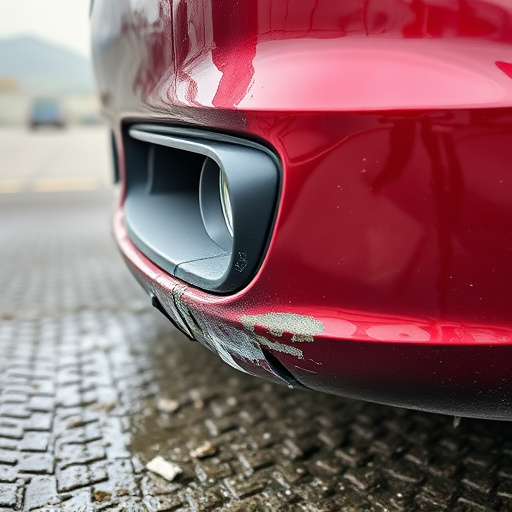
The brake system collision check is a critical safety feature designed to identify potential issues within your vehicle’s braking mechanism. This process involves simulating a collision scenario and assessing the brake system’s response, including pads, rotors, and calipers. By undergoing this check, drivers can gain valuable insights into their car’s overall health, specifically focusing on the efficiency of its stopping power.
It serves as a proactive measure for auto repair services and car restoration, ensuring that any problems are detected early on. This is particularly important because brake failures can be extremely hazardous, leading to accidents if not addressed promptly. Regular collision checks enable mechanics to conduct thorough inspections, recommend necessary repairs, and ultimately enhance the overall safety of the vehicle, even if it requires extensive auto body repair in some cases.
How Regular Checks Prevent Failures
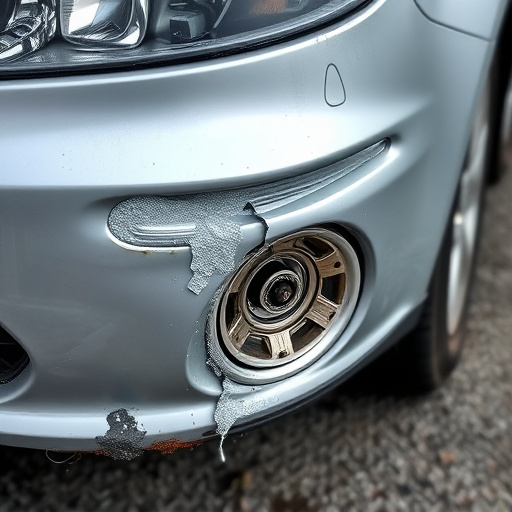
Regular brake system collision checks are an indispensable part of vehicle maintenance, acting as a proactive shield against potential brake failures. These checks involve meticulous inspections that uncover any signs of wear and tear or damage caused by previous collisions. By identifying issues early, drivers can avoid catastrophic accidents and costly car repair services. A simple routine check can reveal compromised pads, rotors, or calipers, which, if left unaddressed, could lead to severe consequences during braking.
Through these checks, mechanics can also assess the overall health of the brake system, ensuring its optimal performance. This process is especially critical for vehicles involved in hail damage repair or car collision repair, as such incidents often affect the structural integrity of the brakes. Preventive measures like these not only save lives but also offer peace of mind, knowing that your vehicle’s braking capability is reliable and dependable.
Benefits of Early Detection for Safety
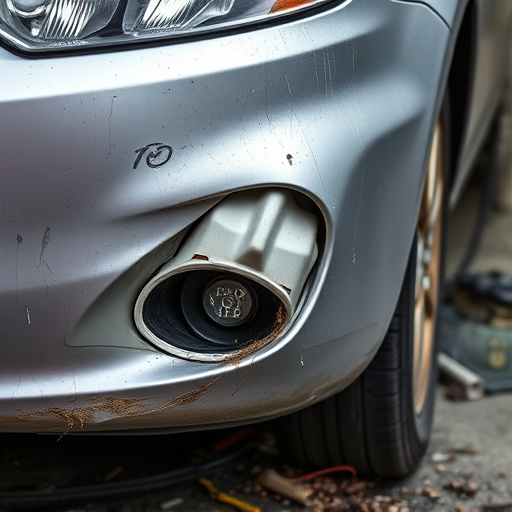
The implementation of a brake system collision check is a proactive measure that significantly enhances vehicle safety. By regularly scanning and assessing the condition of the brake system, potential issues can be identified at an early stage. This early detection plays a pivotal role in preventing catastrophic brake failures that could lead to accidents. When left unattended, even minor problems within the intricate network of brakes can escalate, affecting braking performance and increasing the risk of collisions on the road.
Through advanced diagnostic tools, this check ensures that any defects or wear and tear are promptly addressed. Regular maintenance routines, including replacing worn-out components like brake pads or rotors, can extend the lifespan of the entire system. Moreover, it reduces the need for extensive auto body repair and costly repairs related to accidents caused by failed brakes, such as auto glass repair. Ultimately, prioritizing brake system collision checks contributes to a safer driving experience, giving drivers peace of mind and fostering a culture of responsible vehicle maintenance.
The implementation of regular brake system collision checks is a proactive measure that can significantly enhance vehicle safety. By understanding potential issues and performing timely inspections, drivers and mechanics can prevent catastrophic brake failures. This early detection method not only ensures the well-being of occupants but also reduces the risk of accidents on the road. Embracing brake system collision check as a standard practice is a step towards a safer driving experience.


